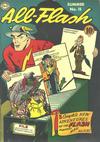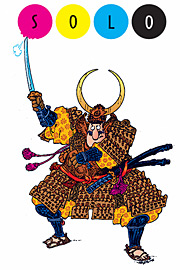 Two months ago I picked up a copy of the comic book All-Flash #15 (Summer 1944), published during the thick of World War II. In the bottom margin of each page is a slogan, in rhymed couplet form, on how children could help with the war effort:
Two months ago I picked up a copy of the comic book All-Flash #15 (Summer 1944), published during the thick of World War II. In the bottom margin of each page is a slogan, in rhymed couplet form, on how children could help with the war effort:
- Bottom Lines on Following Pages Tell What to Do While Battle Rages
- Tin Cans in the Garbage Pile Are Just a Way of Saying “Heil!”
- Waste Fats in Good Condition Help to Make Fine Ammunition
- Boys and Girls, Every Day, Can Give War Aid in Many a Way—
- Every Time You Buy a Stamp, You Feed the Flame in Freedom’s Lamp
- If You Have an Extra Quarter, Buy a Stamp to Make War Shorter
- However far soldiers roam, the want to have some mail from home
- Collect Old Paper, Turn It In—Help Your Uncle Sam to Win
- You Can Walk to School and Store! Saving Gas Helps Win the War!
- Boys Are Smart, Girls Are Wise, Black Markets Not to Patronize
- IF YOU STILL HAVE METAL SCRAP, TURN IT IN TO BEAT THE JAP
- Turn Out Lights Not in Use —War Production Needs the “Juice”
Case and punctuation are preserved as closely as possible. Continue reading
 I caught a
I caught a 